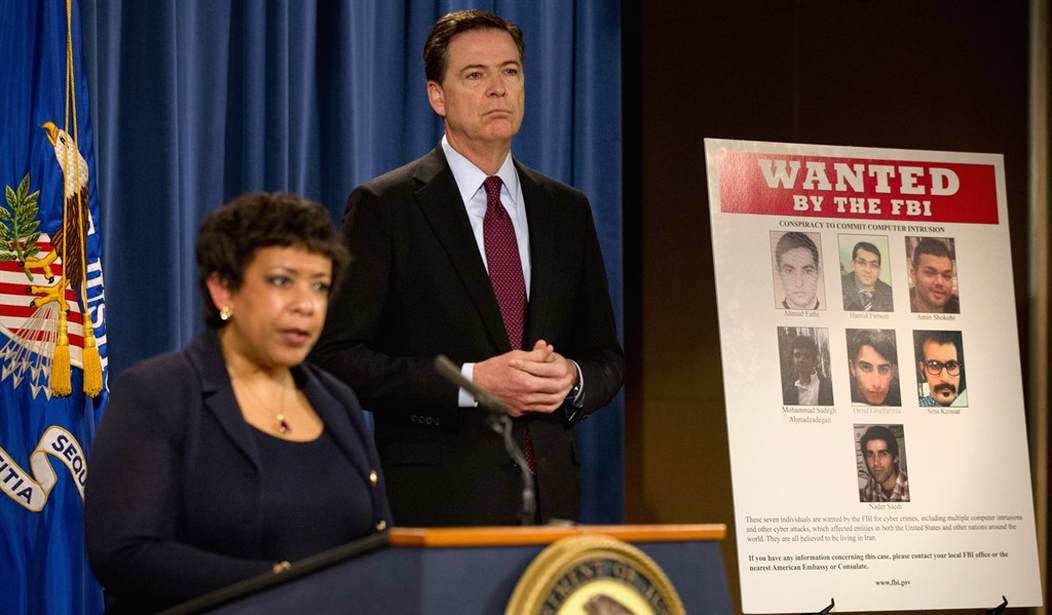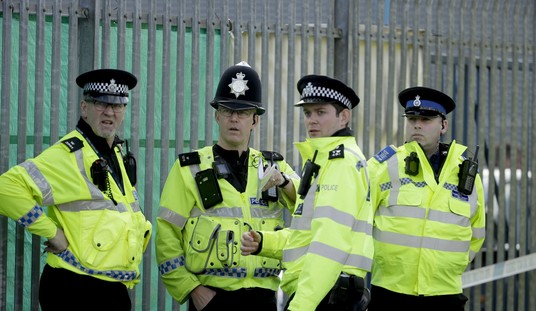High drama. But why did Loretta Lynch react with “steely silence”? Was it because Comey had stunned her with credible evidence that she was in the tank for the Clintons on Emailgate? Or was it because she knew the evidence wasn’t credible and was insulted by the accusation?
During the conversation [shortly before the Clinton email investigation ended], Comey told lawmakers he confronted Lynch with a highly sensitive piece of evidence, a communication between two political figures that suggested Lynch had agreed to put the kibosh on any prosecution of Clinton.
Comey said “the attorney general looked at the document then looked up with a steely silence that lasted for some time, then asked him if he had any other business with her and if not that he should leave her office,” said one source who was briefed.
Comey “took that interaction and the fact she had met with Bill Clinton as enough reason to decide he would not allow the Justice Department to decide the fate of the case and instead would go public” with his own assessment that the FBI could not prove Mrs. Clinton intended to violate the law when she transmitted classified information through her private email and therefore should not be criminally charged. Another source said the “tarmac meeting was the public excuse for not going to Lynch when all along there was other evidence that was more concerning to Comey.”
That sounds suspiciously like the alleged email between Debbie Wasserman Schultz and a staffer at one of George Soros’s organizations, in which Debbie Downer supposedly “expressed confidence that Ms. Lynch would keep the Clinton investigation from going too far.” Read all about it. The NYT first reported the existence of the email in April, noting that it was part of a batch of hacked documents that piqued the FBI’s curiosity. Late last month, WaPo claimed that the FBI had concluded that the email was a fake, disinformation produced by Russia to cast suspicion on Lynch. A few days after that, CNN alleged that Comey knew it was a fake even before he gave his famous press conference about Clinton and Emailgate last July. The fake email was important to his decision to speak publicly about the case, supposedly, because he thought Lynch was too compromised by the document to address the matter authoritatively. If she had cleared Clinton, the Russians could have/would have leaked the fake email to “prove” that she was in the tank for Hillary. And then there’d be chaos among voters, with Republicans convinced that the email was a smoking gun of obstruction of justice by the Attorney General. The email, even though fake, forced Comey to speak up to protect the DOJ’s credibility.
The excerpt above calls that into question, though. If Lynch’s reaction made Comey think she couldn’t be the DOJ’s mouthpiece on Emailgate, that implies that maybe he thought the email wasn’t fake after all. In fact, the story goes on to claim that “Comey’s [closed-session] account to Congress does not sync with … media reports” about an email between Wasserman Schultz and a Soros staffer. Which part “does not sync,” though? That’s important. Did Comey tell Congress that the Wasserman Schultz email was real? Or did he confirm that it was a Russian fake but some trivial detail was wrong, e.g., maybe it purported to come from someone other than Wasserman Schultz? If the latter, then this is a story about Russian disinformation influencing the FBI’s handling of a politically sensitive case in the middle of an election. If the former, it’s a story about the Obama administration’s Justice Department running interference for the Democratic nominee. Seems like a key distinction!
Either way, the president’s made up his mind.
https://twitter.com/realDonaldTrump/status/874608587473080320








Join the conversation as a VIP Member